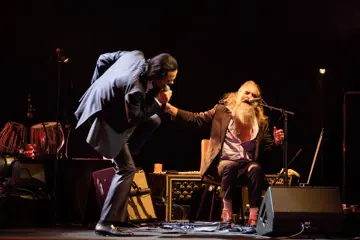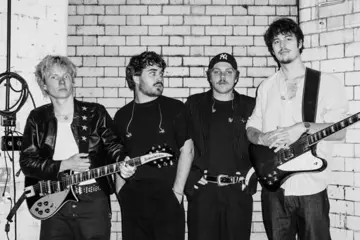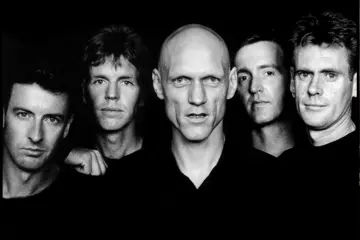 Kenny Wayne Shepherd
Kenny Wayne ShepherdOver a career spanning almost a quarter of a century, American rock and blues guitar legend Kenny Wayne Shepherd has just about seen and done it all in rock'n'roll. Releasing his debut album as a teenager way back in 1995, he's experienced huge album sales, had massive hit singles and toured the world relentlessly to packed-out audiences.
Something else he's seen is the astronomical changes that the music industry has gone through over the years, and while most would love a return to those halcyon days of the past when there were millions of dollars in music, Shepherd is philosophical about it all and very much sees the need to "adapt or perish".
"We used to sell millions of records when we put albums out," he recalls, "now it's pretty safe to say that no artist in our genre is going to be selling millions of records, ever again. Most people are going towards streaming music. Buying albums as a physical product and all that stuff is almost a thing of the past.
"But what is interesting is when you learn to change with the times. One thing I've found is the power of social media, which we didn't really discover until about the last five years or so. That's when we really started focusing on having a strong social media presence and started realising we could connect directly to our fans all over the world, and not just relying 100% upon the record company."
It's not just that record sales have dropped exponentially over the last couple of decades, the support that artists like Shepherd receive from those who run the airwaves has dropped away to almost nothing now too. Again, however, he sees this as an opportunity rather than something that might make him hang up his guitar and go get a 'real job'. And again, the wonder known as social media is the catalyst for optimism and positive change.
"Radio here has changed," he states. "There used to be a lot of radio stations who would support artists like myself, that's why Blue On Black was a hit song and went number one on the rock charts for 20 weeks or something. That just doesn't exist here anymore, really. Those fans that you would usually reach through radio you have to try and reach now through social media.
"That creates a lot of opportunity that wasn't there 20 years ago. So it kind of evens up, balances out."
As good as social media has been for artists like KWS in increasing their notoriety and profile, there is virtually no money in it. The money in music these days is in touring, though Shepherd hasn't felt the need to markedly increase his touring commitments since he's spent so much of his life on the road anyway. "For me, I've always made my living as a live touring act," he states. "We built our reputation as a great live band many years ago, I make records so that we can bring the music to the people.
"That's at the core of what we do, and not much has changed in that regard. We've always been a live band and it's always been about the live show."
One unfortunate by-product of the less buoyant nature of the industry is the news that Gibson guitars recently filed for bankruptcy. Once again, Shepherd is far from crying into his beer about this development. "Well, it's shocking, but they are just one of those iconic brands that's not going away," he opines. "I don't want to dog on the way they ran the company, but if you want my humble opinion, I think there was just a series of fairly bad financial decisions, and they didn't have the ability to overcome that.
"So they'll restructure their debt, the company's not going to disappear. Even if there was a danger that someone would come along and buy the company, it's always going to remain Gibson guitars. So we don't need to worry too much."
















